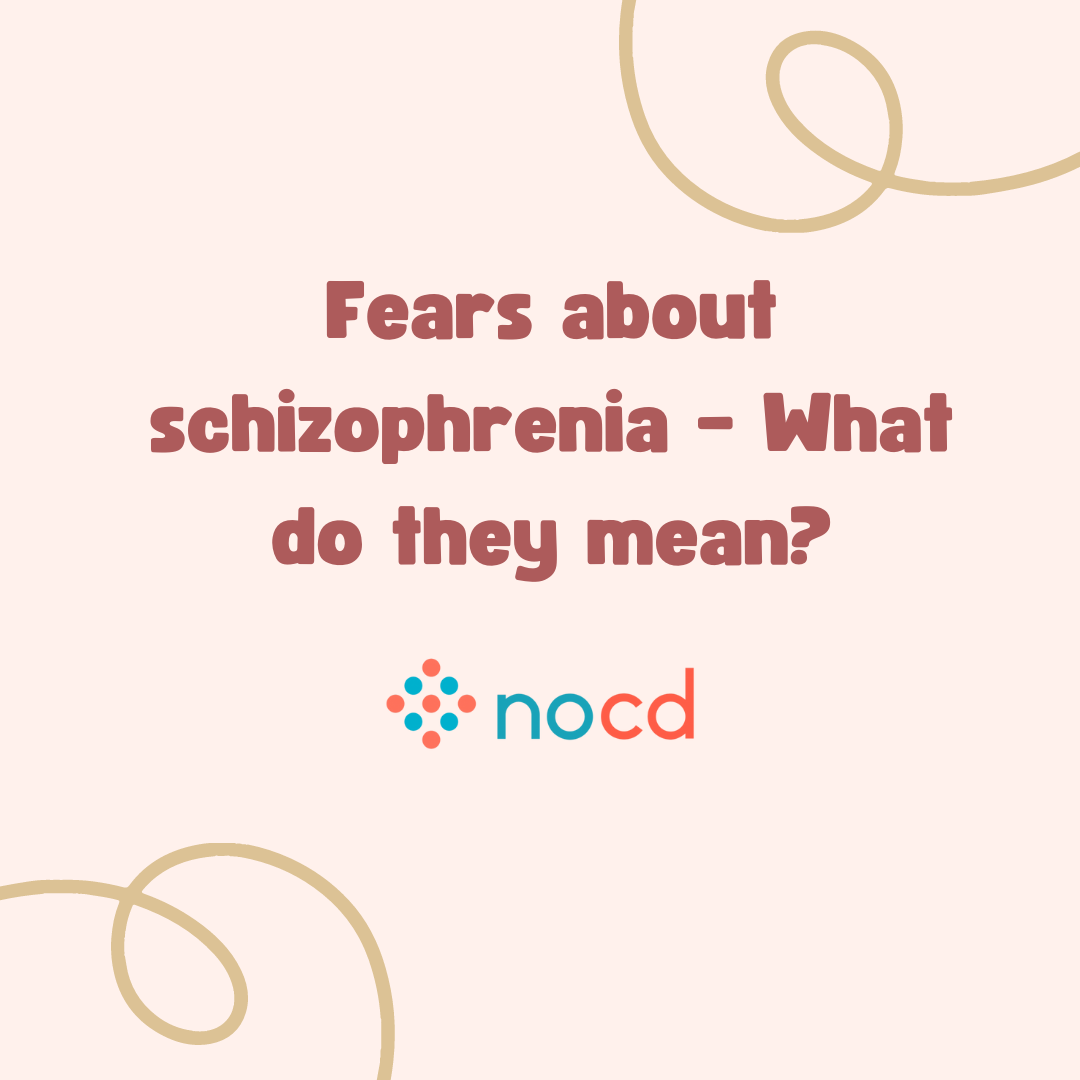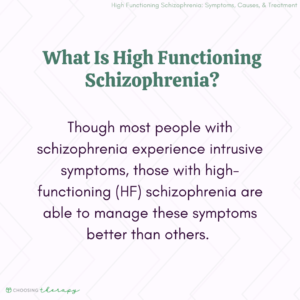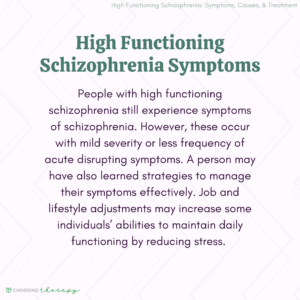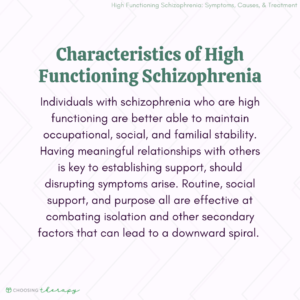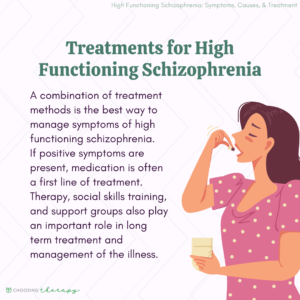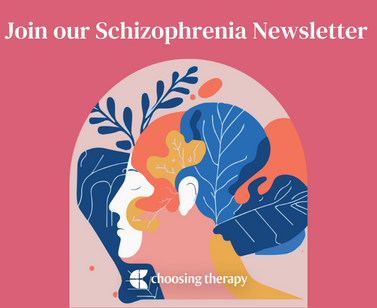
High functioning schizophrenia is not a specific diagnosis. Rather, it qualitatively describes a case of schizophrenia in which the individual is able to carry out a reasonable degree of work or school responsibilities, relate to others, engage in self-care, and maintain stability on a regular basis despite their diagnosis.
Schizophrenia Treatment, Covered by Insurance Grow Therapy enables you to find a psychiatrist or psychiatric nurse practitioner who can diagnose your condition, prescribe appropriate medications, and monitor your reaction to medication. Find A Provider
What Is Schizophrenia?
Schizophrenia is one of a number of mental disorders that include chronic psychotic symptoms, like hallucinations and delusions. Though it occurs in under 1% of the population worldwide, its burden on family and society at large is far-reaching, with the illness being among the top 15 leading causes of disability.1,2
Usually schizophrenia is diagnosed between late adolescence and early adulthood (upper range of late 20s for males and early 30s for females) with the onset of psychotic symptoms. However, subtle signs and symptoms may emerge earlier in the form of negative and cognitive symptoms.
According to the DSM-5, a person with schizophrenia will experience:
- Criterion A: For a period of at least one month, two or more of the following symptoms must be present for a significant amount of time, with at least one of the symptoms being a positive symptom: delusions, hallucinations, disorganized speech, disorganized or catatonic behavior, and negative symptoms.
- Criterion B: Symptoms last for at least six months, but may consist of varying phases (i.e., active, prodromal or residual periods) as long as active phase symptoms present for at least one month. During non-active phases, there will still be signs, albeit attenuated, of disturbance.
- Criterion C: The disturbance regularly interferes with the individual’s normal level of daily functioning, including work, school, relationships, and self-care.
- Criterion D: The symptoms are not attributable to another disorder such as schizoaffective disorder or bipolar disorder with psychotic features.
- Criterion E: Medical conditions and substance use (e.g., recreational, medicinal, toxin) have been ruled out as the cause of symptoms.
- Criterion F: If a person has a history of autism spectrum disorder or communication disorder of childhood onset, schizophrenia can be added as a diagnosis only if prominent delusions and hallucinations present for at least one month and other criteria for schizophrenia are met.
What Is High Functioning Schizophrenia?
Though most people with schizophrenia experience intruding symptoms, those with high-functioning (HF) schizophrenia are able to manage these symptoms better than others. Treatments aim to help the individual achieve stability and maintain daily functioning. However, the efficacy will depend on the symptom cluster, severity, and support available.
Stigma Towards Schizophrenia
Unfortunately, individuals with schizophrenia are not only hampered by the burdens of this debilitating disease, they are also victims of an onslaught of misinformation about their diagnosis, fed by myths, erroneous media stereotypes, and confusion. As such, those with schizophrenia are stigmatized as being dangerous or irredeemably incapacitated by their disorder.
Schizophrenia diagnoses are most commonly confused with sociopathy (i.e., antisocial personality disorder) and dissociative identity disorder (formerly known as multiple personality disorder), with visions of Norman Bates from Psycho burned into our cultural memories. These are often wrongly associated with schizophrenia.
A more correct portrayal of schizophrenia (and one that is based on an actual historical figure) is that of the famed mathematician John Nash, whose portrayal by Russell Crowe was the subject of A Beautiful Mind. Nash is a prime example of an individual with high functioning schizophrenia, given that his diagnosis did not prevent him from making foundational contributions to economics, game theory, and numerous branches of mathematics. Moreover, it did not deter him from winning a Nobel Prize in Economics, among other prestigious awards.
Resources For Schizophrenia
Treatment for Schizophrenia, Covered by Insurance – Grow Therapy enables you to find a psychiatrist or psychiatric nurse practitioner that can diagnose your condition, prescribe appropriate medications, and monitor your reaction to medication. Find A Provider
Schizophrenia Newsletter – Free newsletter from Choosing Therapy for those impacted by Schizophrenia. Get encouragement, tips, and latest info sent twice per week. Sign Up
High Functioning Schizophrenia Symptoms
People with high functioning schizophrenia still experience symptoms of schizophrenia. However, these occur with mild severity or less frequency of acute disrupting symptoms. A person may have also learned strategies to manage their symptoms effectively. Job and lifestyle adjustments may increase some individuals’ abilities to maintain daily functioning by reducing stress.
Symptoms of high functioning schizophrenia may include:
Positive Symptoms
The positive symptoms of schizophrenia refer to the presence of thoughts, feelings, or behaviors that are generally not experienced by most people. These symptoms, which often indicate a break with reality, can be quite scary for the individual. They can take the form of hallucinations (i.e., faulty perceptions), delusions (i.e., distorted beliefs), disorganized thinking, and abnormal movements.
Hallucinations and delusions both reflect distortions of reality common to psychosis. While hallucinations are faulty sensations, delusions are faulty beliefs. They can occur simultaneously in the same person and at the same time, or they can occur individually.
Although both of these symptoms are caused by dysfunctions in the connectivity of frontal, limbic, cortical and subcortical brain regions, the precise neuropathology may vary depending on the cause and the content of the symptom. For example, auditory hallucinations may involve problems with the connectivity to auditory cortex, while visual hallucinations may stem from occipital cortex dysconnectivity.
Many high functioning individuals with schizophrenia still report hallucinations and delusions, but are better able to function despite the intrusion. Often, factors that determine the course and prognosis of one’s schizophrenia are related to an individual’s premorbid (pre-diagnosis) socioeconomic status, intellectual functioning, executive functioning, social supports, family stability, and exposure to stressors and trauma.
Negative Symptoms
The term “negative” is used to refer to the absence of typical healthy features, like motivation, interest, and expression. Negative schizophrenia symptoms are the most common first sign of the condition, and usually emerge during the prodromal phase of schizophrenia.
High functioning individuals with schizophrenia tend to adopt coping mechanisms that can either mitigate or mask their negative symptoms, such that others may not know that the person even experiences them. In other cases, medication may help with the emotionally-oriented negative symptoms, like anhedonia and depression.
Negative symptoms of high functioning schizophrenia may include:
- Alogia: The lack of making logical sense in one’s arguments.
- Anhedonia: The inability to experience pleasure (a.k.a., “hedonism”) when engaging in activities that usually bring joy, like sex or playing video games.
- Avolition: A lack of motivation to voluntarily complete one’s regular tasks.
- Blunted affect: Reduced emotional expression in one’s face, body, or voice. Flat affect is an extreme case of blunted affect, characterized by the complete absence of emotional expression.
- Diminished Activities of Daily Living (ADLs): Avoidance of bathing, oral hygiene, changing clothes, shaving, doing laundry, paying bills, and other necessary activities.
Cognitive Symptoms
Though not yet an official diagnostic criterion for a DSM-5 diagnosis of schizophrenia, the onset of schizophrenia is often preceded or accompanied by a marked reduction in cognitive functioning.
People with high functioning schizophrenia generally have a higher level of cognitive functioning, which can translate to improved treatment compliance and engagement with therapeutic strategies and symptom management.11
According to research, neurocognitive functioning for those with schizophrenia can result in deficits in:
- Executive functioning: The ability to plan, organize, make decisions, adapt to changing conditions, see things from alternate perspectives, and engage in abstract reasoning.
- Verbal fluency: The ability to generate words and expand vocabulary.
- Verbal encoding: The ability to commit things to memory that were presented in verbal communication.
- Verbal memory: The ability to recall things that were presented in verbal communication.
Characteristics of High Functioning Schizophrenia
Individuals with schizophrenia who are high functioning are better able to maintain occupational, social, and familial stability. Having meaningful relationships with others is key to establishing support, should disrupting symptoms arise. Routine, social support, and purpose all are effective at combating isolation and other secondary factors that can lead to a downward spiral.
Relative to typical cases of schizophrenia, individuals who are high functioning schizophrenia may:
- Be better able to understand others: They may have a greater ability to interpret context and read facial expressions, as well as acknowledge subtleties in voice intonations–all of which helps to facilitate communication.
- Be capable of increased creativity: Positive and negative symptoms, when they exist for those with HF schizophrenia, have the potential to be converted into positive, creative expressions, given that they have greater intellectual tools, and ego strengths.
- Show increased resiliency: Individuals with HF schizophrenia are more likely to have more social support, and this enhanced social network helps them to bounce back quicker from episodes.
- Have better self-care: Being less burdened with lower levels of negative symptoms means that those with HF schizophrenia have the potential for greater self-care.
- Are more likely to be employed: Having schizophrenia need not prevent a person from working, being a professional, or even winning a Nobel Prize. Robert Francis, a therapist and writer who experiences schizophrenia, maintains a career as a social worker and has published several books on his personal experiences.
What Causes High Functioning Schizophrenia?
Schizophrenia is a disorder with a broad array of symptoms, the cause of which still eludes clinicians. Many factors are believed to contribute, including genetics, neurological dysfunction, substance use, psychological and environmental factors (e.g., stress, trauma), infection, and autoimmune dysfunction.
Possible causes of schizophrenia include:
- Genetics: While genetics seems to play a role in general, a single gene has not been identified as the main cause; rather, many different genetic mutations have been implicated.3
- Brain structure: The symptoms of schizophrenia are broad and likely stem from dysfunction in various parts of the brain. The circuitry connecting the prefrontal cortex and limbic system with midbrain areas, like the striatum, are of particular interest to researchers.4
- Neurotransmitters: The dopamine circuit seems to play a significant role in many of the psychotic symptoms. Other neurotransmitters, like GABA (gamma aminobutyric acid), glutamate, and serotonin (5-HT), also seem to work in concert with dopamine, as neurotransmitters regulate one another in the complex brain system.
- Environmental Factors: Numerous factors can impose immense stress on an individual, which can either lead to the gradual development of schizophrenia or trigger its sudden onset. Among the most common are sexual or physical abuse, trauma, social disadvantage, and separation from loved ones.
- Substance use: Drugs of abuse are thought to increase vulnerability to schizophrenia, especially substances affecting dopamine, like amphetamines, cocaine, and cannabis.
- Autoimmune diseases: Individuals with certain autoimmune diseases are 2-5 times more likely to develop schizophrenia, possibly through a mechanism involving cytokines, which are small proteins involved in cell signaling.5
- Inflammation: Along with microglia activation and a pro-inflammatory diet, increased cytokines are thought to lead to neuroinflammation, a potential cause or correlate of schizophrenia symptoms.5
- Infection: Research suggests that prenatal exposure to certain viral or parasitic infections increases the risk of developing schizophrenia later in life.5 Some experts also theorize a possible link between prenatal exposure to COVID-19 and schizophrenia.6
Associated Mental Health Conditions
Making differential diagnoses between schizophrenia and other disorders can be tricky, as schizophrenia can encompass symptoms from many different conditions. In addition to these, there are numerous other diagnoses on the schizophrenia spectrum that share symptoms and presentations similar to schizophrenia.
Accordingly, only a skilled clinician can really determine whether the symptoms a person is experiencing are better accounted for by another condition or schizophrenia. The higher functioning an individual is, the more difficult it is to distinguish between diagnoses. There is also the possibility that a number of these disorders can occur together with schizophrenia.
High functioning schizophrenia may co-occur with:
- Depression
- Bipolar disorder
- Obsessive-compulsive disorder (OCD)
- Post-traumatic stress disorder (PTSD)
- Anxiety disorders
- Substance use disorder (SUD)
How Is High-Functioning Schizophrenia Diagnosed?
Finding help for schizophrenia starts with the courage to acknowledge that something is wrong. Many people are afraid to admit that something isn’t right, and valuable time is lost. Schizophrenia can be a progressively degenerative condition if left untreated. As with most medical and mental illnesses, the earlier schizophrenia is treated, the better.
High functioning schizophrenia may be diagnosed using one of the following tools:
- Neuropsychological testing: Though the presence of cognitive symptoms are not formally required for diagnosing schizophrenia, the disease is often accompanied by certain cognitive deficits that can help elucidate a diagnosis and differentiate between schizophrenia and other neuropsychological disorders or personality disorders.
- Positive and Negative Syndrome Scale (PANSS): The PANSS is a 30-item rating system for assessing recent positive, negative, and general psychiatric symptoms. It takes approximately a half hour to complete and is a common tool for evaluating the efficacy of antipsychotic medication.7
- Scale for the Assessment of Negative Symptoms (SANS): Developed in 1980, the SANS assesses negative symptoms of schizophrenia, including alogia, affective blunting, avolition, apathy, anhedonia, asociality, and attentional impairment.8
- Scale for the Assessment of Positive Symptoms (SAPS): As a complementary tool to the SANS, this rating scale assesses positive symptoms of schizophrenia, such as hallucinations, delusions, and disorganized thought and behavior.9
- 16-Item Negative Symptoms Assessment (NSA-16): The NSA-16 is a shorter (16-item) version of the originally 26-item (NSA-26) rating scale to assess negative symptoms in schizophrenia. For applications requiring very brief assessment, a further truncated 4-item version (NSA-4) is available.10
- Clinical Assessment Interview for Negative Symptoms (CAINS) and Brief Negative Symptom Scale: These are brief, 13-item assessment tools for negative symptoms of schizophrenia.10
- Clinical Global Impression Schizophrenia (CGI-SCH): This tool assesses the presence and severity of positive, negative, depressive, and cognitive symptoms of schizophrenia.10
- Meeting with family members: Individuals with schizophrenia may be unaware of certain symptoms or the degree to which they interfere with daily functioning. Family members can provide additional information that may be key in diagnosis, treatment and support.
- Medical history review: Given the highly heritable nature of schizophrenia, reviewing the medical history of relatives can be useful in determining whether certain ambiguous behaviors are early indications of schizophrenia.
Treatments for High Functioning Schizophrenia
A combination of treatment methods is the best way to manage symptoms of high functioning schizophrenia. If positive symptoms are present, medication is often a first line of treatment. Therapy, social skills training, and support groups also play an important role in long term treatment and management of the illness.
Schizophrenia Treatment, Covered by Insurance Grow Therapy enables you to find a psychiatrist or psychiatric nurse practitioner who can diagnose your condition, prescribe appropriate medications, and monitor your reaction to medication. Find A Provider
What Causes High Functioning Schizophrenia?
Schizophrenia is a disorder with a broad array of symptoms, the cause of which still eludes clinicians. Many factors are believed to contribute, including genetics, neurological dysfunction, substance use, psychological and environmental factors (e.g., stress, trauma), infection, and autoimmune dysfunction.
Possible causes of schizophrenia include:
- Genetics: While genetics seems to play a role in general, a single gene has not been identified as the main cause; rather, many different genetic mutations have been implicated.3
- Brain structure: The symptoms of schizophrenia are broad and likely stem from dysfunction in various parts of the brain. The circuitry connecting the prefrontal cortex and limbic system with midbrain areas, like the striatum, are of particular interest to researchers.4
- Neurotransmitters: The dopamine circuit seems to play a significant role in many of the psychotic symptoms. Other neurotransmitters, like GABA (gamma aminobutyric acid), glutamate, and serotonin (5-HT), also seem to work in concert with dopamine, as neurotransmitters regulate one another in the complex brain system.
- Environmental Factors: Numerous factors can impose immense stress on an individual, which can either lead to the gradual development of schizophrenia or trigger its sudden onset. Among the most common are sexual or physical abuse, trauma, social disadvantage, and separation from loved ones.
- Substance use: Drugs of abuse are thought to increase vulnerability to schizophrenia, especially substances affecting dopamine, like amphetamines, cocaine, and cannabis.
- Autoimmune diseases: Individuals with certain autoimmune diseases are 2-5 times more likely to develop schizophrenia, possibly through a mechanism involving cytokines, which are small proteins involved in cell signaling.5
- Inflammation: Along with microglia activation and a pro-inflammatory diet, increased cytokines are thought to lead to neuroinflammation, a potential cause or correlate of schizophrenia symptoms.5
- Infection: Research suggests that prenatal exposure to certain viral or parasitic infections increases the risk of developing schizophrenia later in life.5 Some experts also theorize a possible link between prenatal exposure to COVID-19 and schizophrenia.6
Associated Mental Health Conditions
Making differential diagnoses between schizophrenia and other disorders can be tricky, as schizophrenia can encompass symptoms from many different conditions. In addition to these, there are numerous other diagnoses on the schizophrenia spectrum that share symptoms and presentations similar to schizophrenia.
Accordingly, only a skilled clinician can really determine whether the symptoms a person is experiencing are better accounted for by another condition or schizophrenia. The higher functioning an individual is, the more difficult it is to distinguish between diagnoses. There is also the possibility that a number of these disorders can occur together with schizophrenia.
High functioning schizophrenia may co-occur with:
- Depression
- Bipolar disorder
- Obsessive-compulsive disorder (OCD)
- Post-traumatic stress disorder (PTSD)
- Anxiety disorders
- Substance use disorder (SUD)
How Is High-Functioning Schizophrenia Diagnosed?
Finding help for schizophrenia starts with the courage to acknowledge that something is wrong. Many people are afraid to admit that something isn’t right, and valuable time is lost. Schizophrenia can be a progressively degenerative condition if left untreated. As with most medical and mental illnesses, the earlier schizophrenia is treated, the better.
High functioning schizophrenia may be diagnosed using one of the following tools:
- Neuropsychological testing: Though the presence of cognitive symptoms are not formally required for diagnosing schizophrenia, the disease is often accompanied by certain cognitive deficits that can help elucidate a diagnosis and differentiate between schizophrenia and other neuropsychological disorders or personality disorders.
- Positive and Negative Syndrome Scale (PANSS): The PANSS is a 30-item rating system for assessing recent positive, negative, and general psychiatric symptoms. It takes approximately a half hour to complete and is a common tool for evaluating the efficacy of antipsychotic medication.7
- Scale for the Assessment of Negative Symptoms (SANS): Developed in 1980, the SANS assesses negative symptoms of schizophrenia, including alogia, affective blunting, avolition, apathy, anhedonia, asociality, and attentional impairment.8
- Scale for the Assessment of Positive Symptoms (SAPS): As a complementary tool to the SANS, this rating scale assesses positive symptoms of schizophrenia, such as hallucinations, delusions, and disorganized thought and behavior.9
- 16-Item Negative Symptoms Assessment (NSA-16): The NSA-16 is a shorter (16-item) version of the originally 26-item (NSA-26) rating scale to assess negative symptoms in schizophrenia. For applications requiring very brief assessment, a further truncated 4-item version (NSA-4) is available.10
- Clinical Assessment Interview for Negative Symptoms (CAINS) and Brief Negative Symptom Scale: These are brief, 13-item assessment tools for negative symptoms of schizophrenia.10
- Clinical Global Impression Schizophrenia (CGI-SCH): This tool assesses the presence and severity of positive, negative, depressive, and cognitive symptoms of schizophrenia.10
- Meeting with family members: Individuals with schizophrenia may be unaware of certain symptoms or the degree to which they interfere with daily functioning. Family members can provide additional information that may be key in diagnosis, treatment and support.
- Medical history review: Given the highly heritable nature of schizophrenia, reviewing the medical history of relatives can be useful in determining whether certain ambiguous behaviors are early indications of schizophrenia.
Treatments for High Functioning Schizophrenia
A combination of treatment methods is the best way to manage symptoms of high functioning schizophrenia. If positive symptoms are present, medication is often a first line of treatment. Therapy, social skills training, and support groups also play an important role in long term treatment and management of the illness.
Medications
Pharmaceutical treatment is often the first and most effective means of alleviating schizophrenia’s most challenging symptoms—especially psychotic symptoms. However, finding the right medication can be difficult.
While medication can be useful for high functioning individuals with schizophrenia to keep symptoms at bay, many harbor side effects that can interfere with mental health as well. For this reason, medication compliance is a big challenge and can interfere with stability. High functioning individuals may be better able to understand the importance of adherence to their medication regimen for maintaining stability.
It is important to note that antipsychotics are typically prescribed in this case because of their efficacy in treating schizophrenia. Other medications can be used, but not as stand-alone treatment for schizophrenia. A skilled psychiatrist can help figure out the best pharmaceutical regimen for the individual. If you have trouble finding a psychiatrist near you, you may want to consider online psychiatry options.
Medications used to treat schizophrenia include:
- Typical antipsychotics: First-generation or typical antipsychotics work by reducing dopamine levels. Typical antipsychotic medications may have numerous serious side effects such as tardive dyskinesia.
- Atypical Antipsychotics: Second-generation or atypical antipsychotics work differently, modulating both serotonin and dopamine. Though atypical medications have a reduced propensity to cause certain side effects, they come with their own set of adverse effects.11
- Other medications: Other medications commonly used for depression and anxiety may also be used to treat specific negative symptoms of schizophrenia, or to preempt positive symptoms that may be triggered by intense anxiety.
- Injectables: Recently, clinicians have been developing longer-acting antipsychotics that can be injected by medical professionals to avoid reliance on regular daily adherence by the individual with schizophrenia.5
- Cannabidiol (CBD): There has been considerable optimism recently for the use of CBD as a relatively safe and tolerable therapeutic to treat schizophrenia symptoms. In fact, a number of studies have shown CBD to be as effective as some antipsychotic drugs (e.g., amisulpride) and without as many adverse side effects.*12,13
*Please note that most CBD on the market is not regulated and many products have been found to have inaccurate dose information. Furthermore, CBD does have side effects as well and can interact with other medications. It is always recommended to consult with your doctor before using.
Therapy
Psychotherapy often supplements medication in the treatment of schizophrenia, and can be even more effective with high functioning individuals who can learn and integrate coping strategies into daily life. A combination of individual therapy, particularly from a behavior therapy (BT) or cognitive behavior therapy (CBT) approach, along with family and group therapy is most effective.
Therapy options for treating high functioning schizophrenia include:
- Behavior therapy (BT): BT can offer patients concrete rewards for concrete behavior successes, like achieving hygiene goals.
- Cognitive behavioral therapy (CBT): CBT can help individuals learn to perform reality testing on their hallucinations and delusions, and implement cognitive strategies to reduce stress and maintain meaningful relationships.
- Family therapy: Family therapy can help family members create an environment of support and positivity that reduces anxiety, anger, and confusion, thus preventing the symptoms before they arise.
- Group therapy: Regardless of whether you have schizophrenia or care for someone with schizophrenia, realizing that you are not alone can be invaluable to feeling supported.
- Psychodynamic therapy: Psychodynamic therapy can sometimes be helpful with patients who have good insight (i.e., high functioning individuals) to recognize how their psychotic symptoms may be related to past traumas that haven’t been fully examined or acknowledged.
- Social skills training (SST): SST can be particularly useful, especially in conjunction with psychotherapy and medication, to help the individual develop skills that are often lacking in schizophrenia.14
How to Cope With High Functioning Schizophrenia
While living with high functioning schizophrenia can be challenging, there are strategies a person can adopt that allow them to better cope with their symptoms. Schizophrenia is a life-long disease, but learning how to live a successful and fulfilling life after diagnosis is possible.
Below are some ways to cope with high functioning schizophrenia:
- Try journaling: Journaling can be a great way for individuals with paranoia or other positive symptoms to express in words or pictures what they’re experiencing. In addition to serving as a creative outlet, if shared with a therapist, it can be helpful in guiding psychotherapy.
- Seek family support: Having family members join for therapy appointments can make a big difference in the treatment outcome for individuals with schizophrenia. Moreover, coping strategies work best when relatives are involved, educated about the illness, and equipped with coping strategies themselves.15
- Practice stress management: Learning techniques to manage stress is important, such as recognizing stress before it becomes unmanageable, using relaxation and mindfulness techniques, and reframing one’s thoughts.
- Stay social: Individuals with schizophrenia tend to isolate in response to their symptoms. The best antidote to breaking this cycle is maintaining many healthy relationships and increasing socialization as much as possible.
- Maintain self-care: Engaging in activities that one finds enjoyable holds considerable therapeutic value. Activities that reduce stress and distract one from paranoia and other delusions are ideal, like playing sports or games, watching a movie, reading a book, cooking, going to a bookstore, or shopping.
- Practice good hygiene: Maintaining good hygiene is important to avoid other complicating health issues and to encourage positive social interactions, especially among individuals who tend to feel paranoid about what others think.
- Maintain structure: Trying to build structure into one’s daily schedule, even for a few activities, can be more helpful than one realizes. Routine is often a hidden factor behind the success of many individuals adapting to schizophrenia as it can be useful in protecting against derailment.
- Pay attention to nutrition, diet, and exercise: Poor nutrition can be a stress factor rendering an individual who is already at risk for schizophrenia even more vulnerable. Regular exercise is also important for mental health and can reduce anxiety, which is often associated with feelings of paranoia.
- Avoid drugs and alcohol: The same brain structures that are implicated in schizophrenia also play a role in drug use and addiction.16
- Plan ahead: During stable periods, individuals with high functioning schizophrenia should ask loved ones to reach out to their treatment team if they begin withdrawing or experiencing other negative symptoms.
- Try smart device apps: While nothing replaces face-to-face, in-person support, a variety of mental health apps are available to help maintain routines, activity, emotional awareness, and a sense of overall well being.
Final Thoughts
Schizophrenia is a disorder that presents in many forms and levels of severity. For individuals who are high functioning, effective treatment can help them maintain stability through disrupting symptoms and flare ups, and can. While it is common that high functioning individuals may feel that they don’t need treatment, it is highly recommended to have a treatment plan and access to resources to avoid disruption in one’s quality of life.
Additional Resources
To help our readers take the next step in their mental health journey, Choosing Therapy has partnered with leaders in mental health and wellness. Choosing Therapy is compensated for marketing by the companies included below.
Treatment for Schizophrenia, Covered by Insurance – Grow Therapy enables you to find a psychiatrist or psychiatric nurse practitioner that can diagnose your condition, prescribe appropriate medications, and monitor your reaction to medication. Find A Provider
Talk Therapy – BetterHelp has 25,000+ licensed therapists who provide convenient and affordable online therapy. BetterHelp starts at $65 per week. Visit BetterHelp
Schizophrenia Newsletter – Free newsletter from Choosing Therapy for those impacted by Schizophrenia. Get encouragement, tips, and latest info sent twice per week. Sign Up
Fears about schizophrenia – What do they mean? If you’re experiencing unwanted thoughts about losing your mind, becoming psychotic, or developing schizophrenia, it may actually be a sign of OCD more specifically health concern OCD. You might find yourself constantly questioning the state of your mind, which can cause you to be overly focused on feeling different than usual.